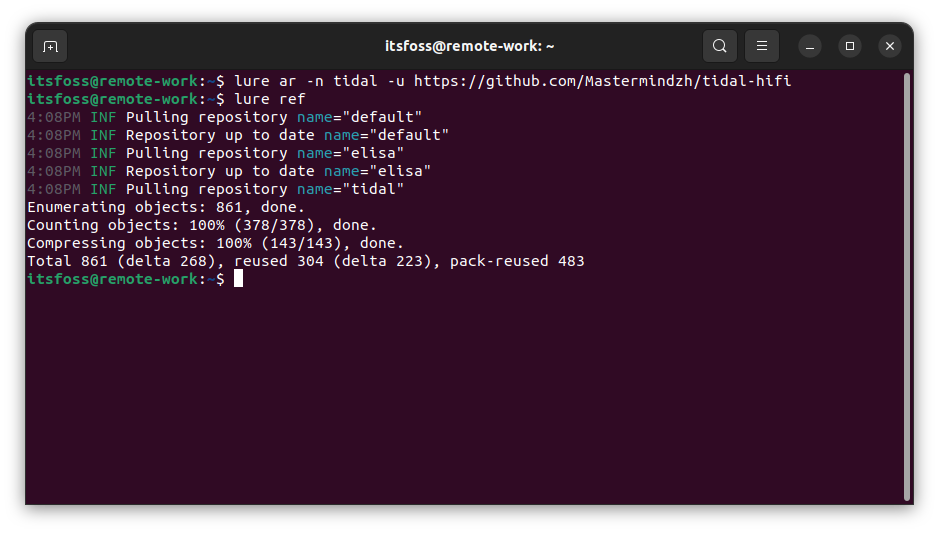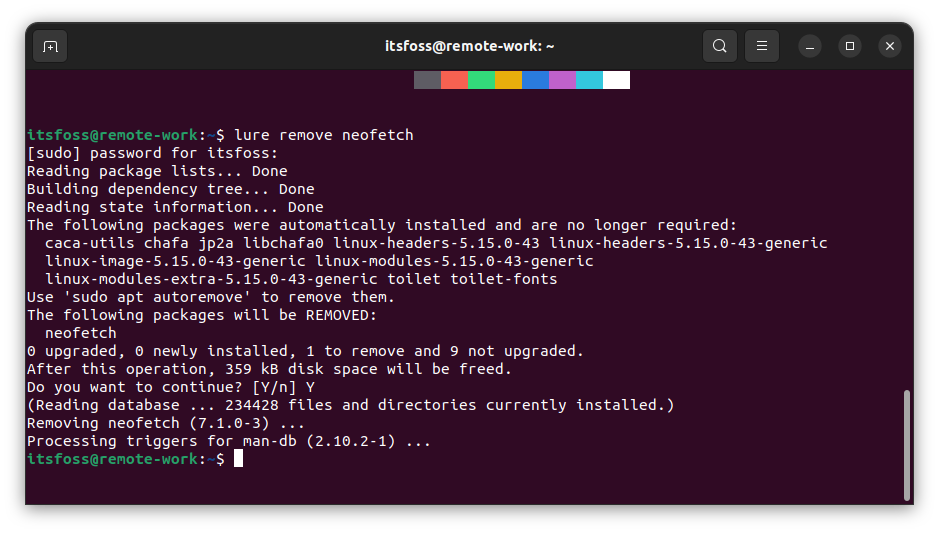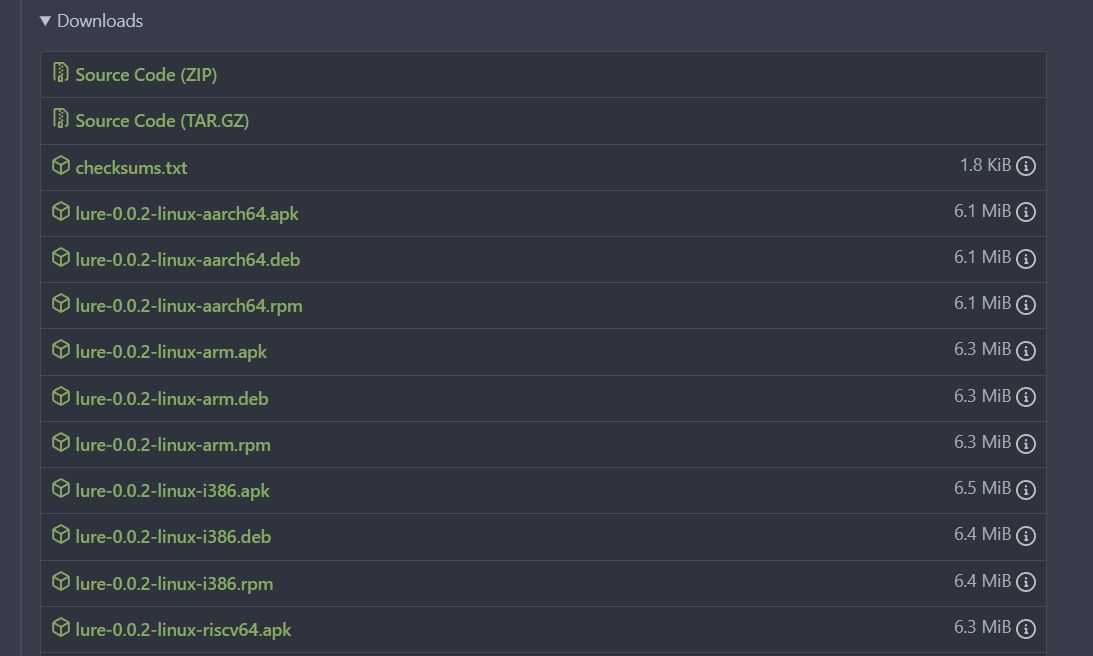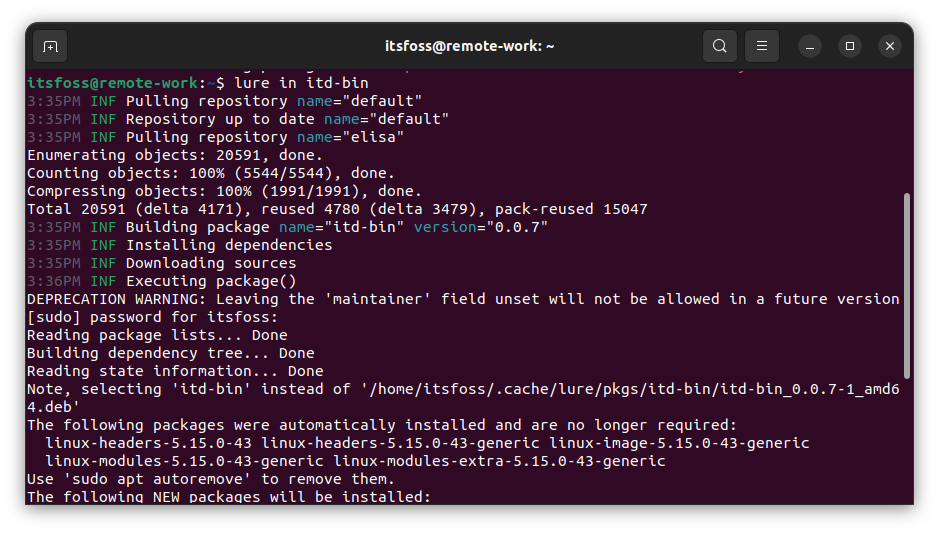
AUR (Arch User Repository) is a community-driven repository for Arch-based Linux distributions.
Long story short: it helps install packages not available in the official repositories and lets you get the latest releases.
I found it helpful with my experience on Manjaro Linux.
Technically, AUR builds a package from the source and then utilizes the package manager (pacman) to install it.
You can also explore more about it in our detailed guide:

📢 Now that you have a good idea about AUR, a new open-source project aims to bring the utility of AUR to all the distributions.
The project is called Linux User REpository (or LURE).
A Project Like This Already Exists?

No.
Developers have tried making an AUR alternative, but for a specific distribution. Like makedeb Package Repository for Debian.
LURE is an ambitious idea that could work on any distribution of your choice.
It seeks to be a tool that helps you create native packages for your distribution using a script similar to PKGBUILD.

The developer mentions some of the technical details in a Reddit announcement post:
My project is called LURE, short for Linux User REpository. It builds native packages and then installs them using the system package manager, just like the AUR. It uses a build script similar to the AUR's PKGBUILD to build the packages.
It is written in pure Go, which means that it has zero dependencies after it's built, other than any privilege escalation command (sudo,doas, etc.) and any one of the supported package managers, which currently are:pacman,apt,apk(Alpine Linux, not Android),dnf,yum, andzypper.
Sounds exciting!
You can also explore more about it on its GitHub mirror.
Using LURE
You do not have to install an additional package manager to make it work; it works automatically with your system's package manager.
So, if it does not find a package in its repo (or any of its added repo), it moves to the system's default repo and installs it from there. Just like I installed/removed neofetch on my system using the lure command:

While the project is in early development, it offers binary packages for various distributions allowing you to install and test them.

Currently, its repository includes one project from the creator itself. But you can try to add a repo and build/install things.
For the sake of convenience, I tried installing the package in its repo:

The command looks like this:
lure in itd-bin On its official documentation page, you can read more about its usage to build/install/add repositories.
Some of the planned features for future releases include:
- Automated install script
- Automated docker-based testing tool
- Web interface for repos
What Would Make It Better?
Well, for starters, this is an excellent project. If you are someone who used Arch in the past or want to move away from Arch Linux, this will be a good tool for you.
However, for most end-users and non-Arch Linux newbies, something like the Pamac GUI package manager with LURE support should be the icing on the cake.
Of course, at its current stage, it needs support from open-source contributors. So, if you like the idea, feel free to contribute improvements to the project!
💭 What do you think about LURE? Share your thoughts in the comments below!
- Even the biggest players in the Linux world don't care about desktop Linux users. We do.
- We don't put informational content behind paywall. Your support keeps it open for everyone. Think of it like 'pay it forward'.
- Don't like ads? With the Plus membership, you get an ad-free reading experience.
- When millions of AI-generated content is being published daily, you read and learn from real human Linux users.
- It costs just $2 a month, less than the cost of your favorite burger.
Become a Plus Member today and join over 300 people in supporting our work.










